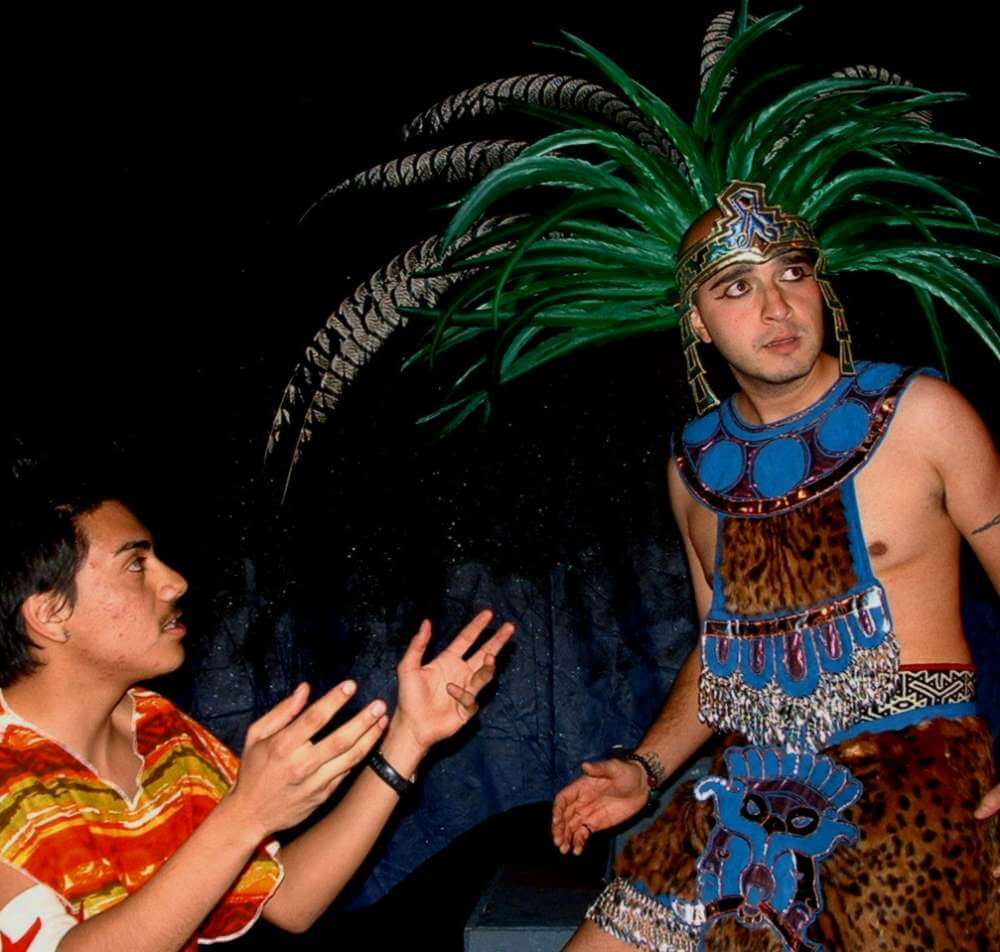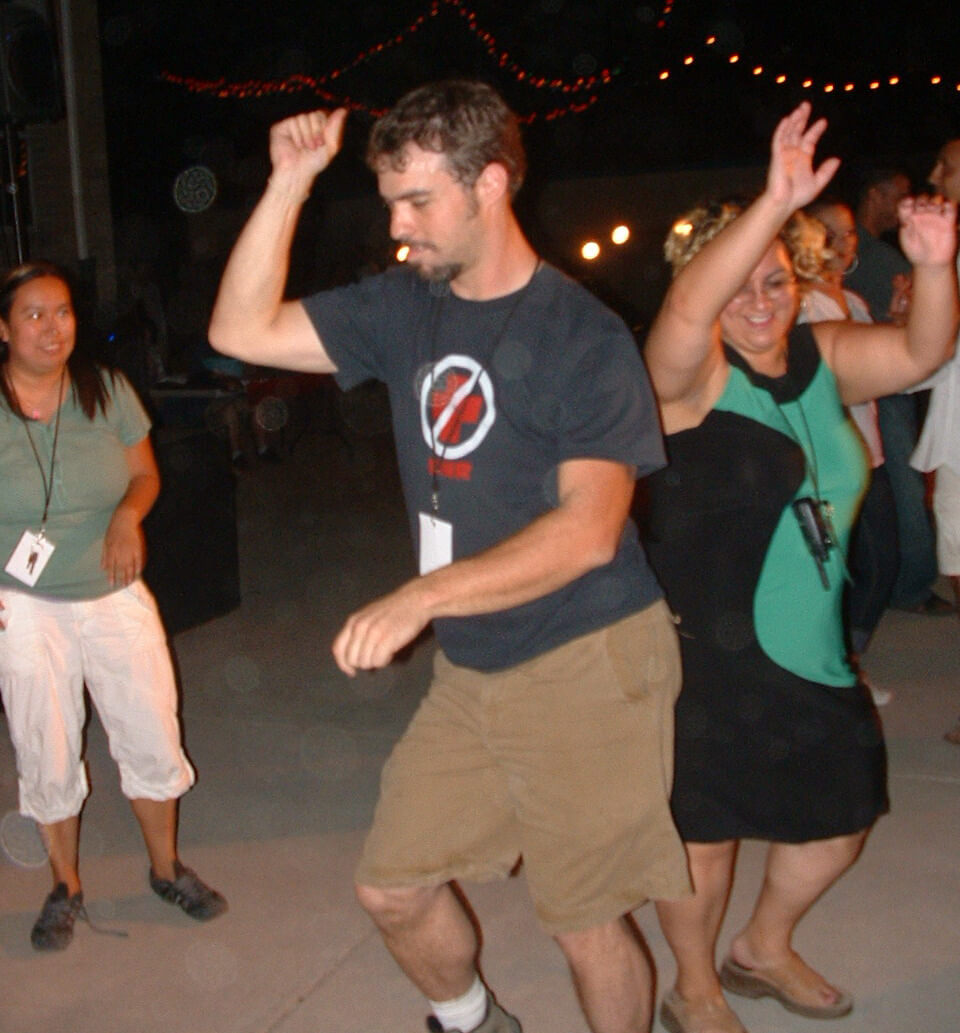Su Teatro/Teatro Campesino Exchange
May 10, 2009 • 3 minute read
Last year, Su Teatro carried out a mentorship and creative exchange project, funded by the National Performance Network, which significantly bolstered the curatorial knowledge and aesthetic understanding of the organization’s junior staff.
 The idea was to make sure the junior staff was well grounded in the history, tenets, and aesthetics of Chicano theater and then utilize their skills and enthusiasm, unleash them into the world so to speak, and hand them the reins to carry out more artistic programming. Funding from NPN’s Mentorship and Leadership Initiative allowed junior staff to seek out the counsel of elders involved in the birth of Teatro Chicano, including founding and former members of California’s Teatro Campesino (The Farmworkers Theater), as well as younger artists and administrators in the field, and to ultimately drive the production of a summer theater showcase.
The idea was to make sure the junior staff was well grounded in the history, tenets, and aesthetics of Chicano theater and then utilize their skills and enthusiasm, unleash them into the world so to speak, and hand them the reins to carry out more artistic programming. Funding from NPN’s Mentorship and Leadership Initiative allowed junior staff to seek out the counsel of elders involved in the birth of Teatro Chicano, including founding and former members of California’s Teatro Campesino (The Farmworkers Theater), as well as younger artists and administrators in the field, and to ultimately drive the production of a summer theater showcase.
The goals of the project were threefold: (1) to create a dynamic inter-generational aesthetic vision for the organization, (2) to develop younger audiences, and (3) to build skills and knowledge related to program design among junior staff. Su Teatro junior staff members Valarie Castillo and John Kuebler traveled to Berkley, California to visit La Peña Cultural Center during La Peña’s annual Hecho en Califas Festival: a showcase of local and national performing arts talent that emphasizes innovative and emerging new talent. During their visit, Valarie and John met with La Peña Programming Coordinator Sarah Guerra, formerly of Teatro Campesino, as well as artists Lakin Valdez, Nicolas Valdez, and Headrush. These meetings with younger artists and arts administrators gave Valarie and John a sense of some of the emerging trends in new Latino performance and theater art coming out of California and elsewhere (spoken word, hip-hop theater, et al) and insights into engaging younger audiences. For example, La Peña held a community forum in which the audience was directly engaged in discussing and acting out social problem scenarios using the techniques of Augusto “Boal’s Theatre of the Oppressed.”
The second wave of the project saw junior staff meeting with veteranos of the Chicano Theater Movement: world renowned composer Daniel Valdez, one of the founders of Teatro Campesino and Su Teatro’s own Artistic Director and Resident Playwright Anthony J. Garcia, who has been with the 37-year-old company since just after its 1972 inception. Several meetings and workshops were held during Daniel’s Denver residency to discuss and evaluate the history and early aesthetics of agitprop and protest theater. Valarie Castillo worked closely with Daniel on his Su Teatro production of “Ollin,” a stunning poetic interpretation of the Conquest of Mexcio, both as actor and costume designer.
One of the surprise additions to Su Teatro’s project was the addition of playwright Octavio Solis as both mentor and liaison between older and younger generations of theater artists and professionals. Staff attended the world premiere of Octavio’s “Lydia” at the Denver Center Theatre Company and met with the playwright and cast, as well as Diane Rodriguez, associate producer and director of New Play Production at LA’s Center Theatre Group. These discussions focused on the current shift of Latino theater from the fringes to the mainstream, and what that means in terms of developing and nurturing new audiences and maintaining artistic excellence while relinquishing some creative control. 
In the final portion of Su Teatro’s NPN mentorship project, junior staff members Valarie, John, and Mica Garcia de Benavidez worked together to produce a summer showcase that featured staged readings of Marisela Treviño Orta’s award-winning play “Braided Sorrow,” as well as panel discussions and event receptions. College students were targeted for the panel discussions that preceded the staged readings. The subject of Orta’s play—the missing and murdered women of Juarez, Mexico—particularly resonated with groups such as the Pi Lambda Chi Latina Sorority, and the subject, unfortunately, proved timely as violence escalated in Juarez throughout 2008.
By necessity, much of the training offered to Su Teatro junior staff has been a trial by fire, and much of their time is taken up with administrative duties. NPN project funding allowed the organization to set aside specific time, activities, and objectives for staff development, which strengthened junior staff theater knowledge, curatorial experience, and all around confidence as they become more involved in the artistic programming of Denver’s Chicano Theater company, Su Teatro.
photos courtesy of Su Teatro
The Community Fund is made possible by the Doris Duke Charitable Foundation, the Ford Foundation, the National Endowment for the Arts (a federal agency), the MetLife Foundation, and the Nathan Cummings Foundation.
published May 2009